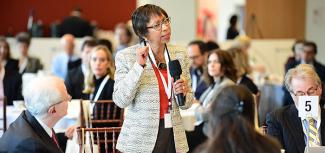
On October 2, 2018 thought leaders in the access-to-justice and social justice spheres came together at Fordham Law to consider the state of the movement for civil justice reform. With a full agenda, Summit participants worked to develop vision statements, identify specific reform goals, and craft action plans as a means of sharpening the understanding and focus of the movement, and better serving individuals and communities that have the most at stake in the civil and criminal justice system.
“The constitutional and moral mission of the judiciary is equal justice,” said former New York Chief Judge Jonathan Lippman in opening remarks. “We’re preaching the gospel of access to justice as judges who no longer are just looking at the four corners of their legal papers and their briefs. We are interactive and responsive to the society around us.”
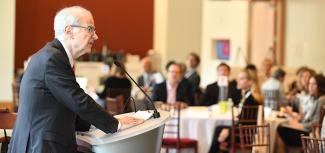
“We have placed access to justice at the center of what we do here at Fordham Law School,” said Dean Matthew Diller. “Lack of access to justice is not random; it tracks and reinforces other disadvantages in society—such as race and gender—and feeds into other harms that solidify and reproduce inequality.”
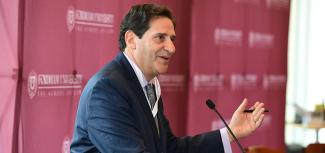
“In law school we teach people that courts and the law are the last level playing field, a refuge for those who are vulnerable,” said National Center for Access to Justice executive director, David Udell, explaining that “what we know from legal services work and what we know from what goes on in the real world is that the courts are sometimes seen as an occupying force, or a system for extracting money from people, and a system of incarcerating people unjustly.” He observed, “we have in this room so many people who are working to make our society live up to the dream of equal justice.”
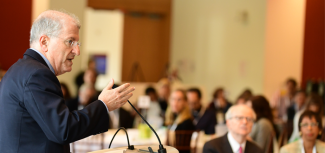
In a conversation moderated by Udell, activist-reformers Robert Rooks of the Alliance for Safety and Justice, and Frank Sharry of America’s Voice spoke, respectively, of steps that have enabled the criminal justice and immigrant rights movements to gain traction and make progress in communities across the country. Summit participants compared the challenges and progress in those movements with the challenges and progress in the civil justice reform movement.
In working groups conducted through the course of the day, Summit participants debated hard questions about the focus of the civil justice reform movement, and also discussed the resources and capacities that are needed to realize the visions and accomplish the goals that are important to the movement and most significant in people’s lives. Lauren Sudeall, of the Center for Access to Justice at Georgia State University College of Law, moderated discussion in the afternoon, at which working group facilitators and participants shared insights with all. Dean Diller brought the day’s events to a close by describing important themes that surfaced during the day.
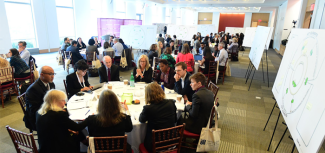
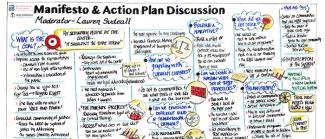
The A2J Collection of articles published by Fordham Law Review is available here and at the following links:
PDF Foreword: Building the Access to Justice Movement David Udell
PDF A Perspective from the Judiciary on Access to Justice Jonathan Lippman
PDF "What Do We Want!"? Rebecca L. Sandefur
PDF Striking a Match, Not a Pose, for Access to Justice Gillian K. Hadfield
PDF Access to Legal Help is a Human Service Jo-Ann Wallace
PDF Don't Go It Alone Ariel Simon and Sandra Ambrozy
PDF Self-Representation is Becoming the Norm and Driving Reform Katherine Alteneder
PDF Integrating the Access to Justice Movement Lauren Sudeall
PDF Building a Movement: The Lessons of Fines and Fees Lisa Foster
PDF A National Movement for Access to Justice Must Be Holistic Justine Olderman and Runa Rajagopal
PDF The Legal Empowerment Movement and its Implications Peter Chapman
PDF A Few Interventions and Offerings from Five Movement Lawyers to the Access to Justice Movement Jennifer Ching, Thomas B. Harvey, Meena Jagannath, Purvi Shah, and Blake Strode
PDF The Role of Data in Organizing an Access to Justice Movement James Gamble and Amy Widman
PDF All Rise for Civil Justice Martha Bergmark
PDF A2J Summit Collection Contributors David Udell
The A2J Summit was hosted jointly by the National Center for Access to Justice and the A2J Initiative at Fordham Law School, and led by Co-directors of the A2J Initiative, Lippman, Diller, and Udell. The A2J Summit was made possible in part by grants from the Chan Zuckerberg Initiative and the Pew Charitable Trust.